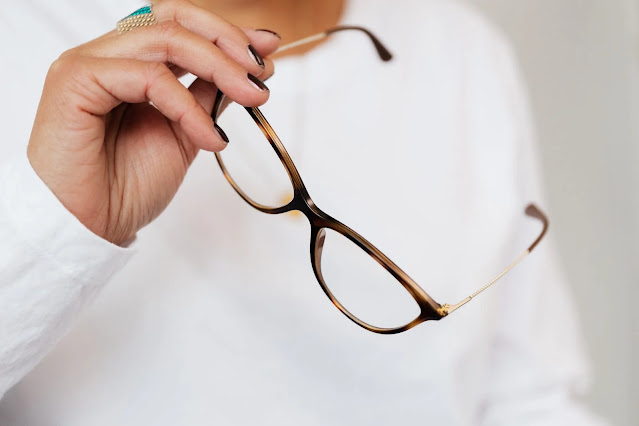Diabetic Eye Care Near Me: Protect Your Vision When You Have Diabetes
Diabetic Eye Care Near Me: Protect Your Vision When You Have Diabetes
Diabetic Eye Care Near Me: Protect Your Vision When You Have Diabetes, If you have diabetes, you know the importance of managing your blood sugar levels to stay healthy. But did you know that diabetes can also affect your eyesight?.

Diabetic Eye Care Near Me: Protect Your Vision When You Have Diabetes
Fortunately, there are steps you can take to protect your vision and find quality diabetic eye care near you. In this article, we'll explore the importance of diabetic eye care, what to expect during an eye exam, and where to find a qualified eye care professional near you.
Understanding Diabetic Eye Disease
Diabetic eye disease, also known as diabetic retinopathy, is a condition that affects the blood vessels in the retina. High blood sugar levels can cause these blood vessels to become damaged, leading to bleeding, swelling, and scarring in the retina.
In fact, diabetic retinopathy is the leading cause of blindness in adults ages 20 to 74.
Other common eye problems associated with diabetes include cataracts and glaucoma. People with diabetes are also at a higher risk for developing these conditions at an earlier age.
The Importance of Diabetic Eye Care
Regular eye exams are essential for people with diabetes, even if you don't notice any symptoms. Diabetic eye disease often has no early warning signs, so it's important to catch any problems early before they progress.
During an eye exam, your eye doctor will check for signs of diabetic retinopathy, as well as other eye problems such as cataracts and glaucoma. They may also perform special tests to check your visual acuity and the pressure inside your eye.
If your eye doctor detects any problems, they may recommend treatment options such as medications or laser surgery to prevent further damage to your eyesight.
What to Expect During an Eye Exam
If you're due for an eye exam, here's what you can expect:
1. Medical History
Your eye doctor will ask about your medical history, including any medications you're taking and any previous eye problems.
2. Visual Acuity Test
You'll be asked to read letters or numbers on an eye chart to test your visual acuity.
3. Eye Pressure Test
Your eye doctor may use a special instrument to measure the pressure inside your eye.
4. Dilated Eye Exam
Your eye doctor will use eye drops to dilate your pupils, allowing them to see the back of your eye more clearly. This may cause temporary blurry vision and sensitivity to light.
5. Retinal Exam
Using a special instrument called an ophthalmoscope, your eye doctor will examine the back of your eye for signs of diabetic retinopathy or other eye problems.
6. Discussion and Recommendations
After your exam, your eye doctor will discuss their findings with you and recommend any necessary treatment options.
Finding Quality Diabetic Eye Care Near You
When it comes to your eyesight, you want to be sure you're getting the best care possible. Here are some tips for finding a qualified eye care professional near you:
1. Ask for Recommendations
Ask your primary care physician or endocrinologist for recommendations for a qualified eye doctor in your area.
2. Check Credentials
Make sure your eye doctor is board-certified and has experience treating patients with diabetes.
3. Look for Specializations
Many eye doctors specialize in diabetic eye care or have experience treating patients with diabetes.
4. Ask About Insurance Coverage
Make sure your eye doctor accepts your insurance and asks about any out-of-pocket costs.
5. Read Reviews
Check online reviews and ratings to get an idea of the quality of care provided by the eye doctor.
Conclusion
If you have diabetes, it's important to take steps to protect your eyesight. Regular eye exams are essential for catching any problems early and preventing vision loss. By finding a qualified eye care professional near you and staying on top of your eye health, you can help ensure a lifetime of clear vision.
FAQs
1-What is the recommended frequency of eye exams for individuals with diabetes?
People with diabetes should get a comprehensive eye exam at least once a year, even if they don't notice any problems with their eyesight.
2-Can diabetic eye disease be prevented?
While there's no guaranteed way to prevent diabetic eye disease, managing your blood sugar levels and getting regular eye exams can help reduce your risk.
3-What are the symptoms of diabetic retinopathy?
Diabetic retinopathy often has no early warning signs. As the condition progresses, you may notice blurred vision, floaters, and difficulty seeing at night.
4-Are there any lifestyle changes that can help prevent diabetic eye disease?
Maintaining a healthy diet, exercising regularly, and not smoking can all help reduce your risk of developing diabetic eye disease.
5-What should I do if I notice a change in my vision?
If you notice any changes in your vision, such as blurred or distorted vision or the appearance of floaters, contact your eye doctor right away.

.webp)